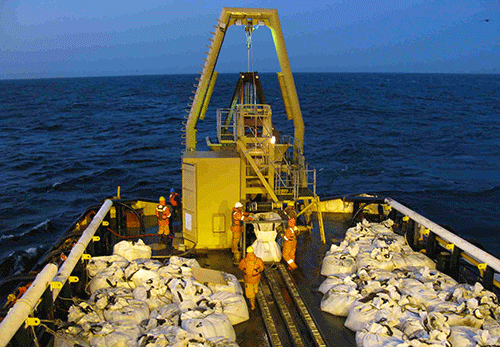Namibian Marine Phosphate (NMP) last week met the Parliamentary Standing Committees on Natural Resources and that of Economics and Public Administration in efforts to strengthen their case for mining phosphate off the Namibian seabed.
NMP is adamant that mining phosphate holds tremendous benefits for Namibia, without threatening the lucrative fishing industry.
NMP is developing the project that it hopes will establish the country as a premier rock phosphate producer in the global market, contributing to domestic economic growth and supporting ongoing crop production through the provision of phosphorus for fertiliser.
“Since 2012, we have not been able to secure an environmental clearance for the mining licence. The clearance that we were awarded in 2016 was immediately suspended due to objections from some players in the fishing industry,” stated NMP’s chief operations officer, Mike Woodborne.
Since then, NMP has been embroiled in a court case which ended in their favour in 2020. The court case involved concerns about the validity of NMP’s mining licence. In October last year, NMP filed another environmental clearance application, which the company said is still being considered by the environmental commissioner.
NMP’s Sandpiper marine phosphate project on the continental shelf off Namibia is contained within tenements of some 7000 km². The Sandpiper deposit occurs as unconsolidated sea floor sediment containing a mixture of old seashells, mud and phosphate sand. It now lies within the depth capability of available dredging technology.
Woodborne observed that NMP is aware of industry objections, but remains unyielding in their assessment that the project holds immense potential to develop other sectors of the domestic economy.
“According to the study carried out, the phosphate-based industry, if developed to its fullest capacity, could create employment for up to 50 000 people in a broad range of industries, including the agriculture, mining, manufacturing and transport industries,” he continued.
A feasibility study indicates that the Sandpiper Project is expected to be technically and economically feasible, and has the potential to be a long-life project capable of delivering attractive investment returns for the project’s shareholders.
Meanwhile, chairperson of the natural resources’ committee Tjekero Tweya expressed concern about investors coming to Namibia, and doing the opposite of what they proclaimed. He said this often occurs while the owners of the resources “swim in a pool of poverty”. Tweya, therefore, advised NMP to be patient in acquiring the environmental clearance certificate, and to allow the relevant authority to carry out its mandate in properly assessing all factors related to the clearance.



